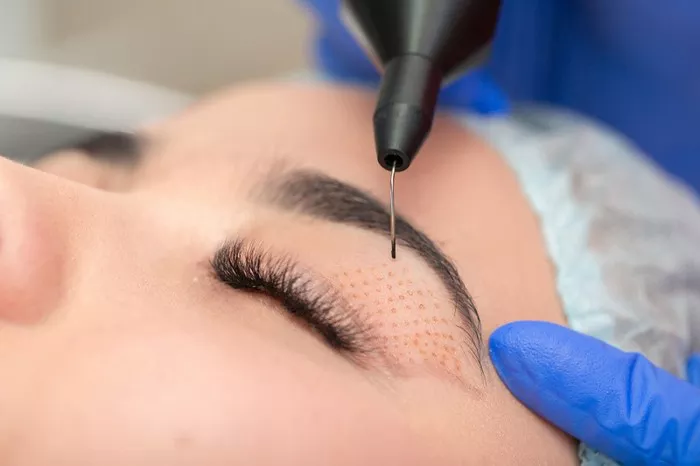Eyelid surgery, also known as blepharoplasty, is a popular cosmetic procedure that is designed to address sagging, drooping, or excess skin around the eyes. While many people choose to undergo this surgery for cosmetic reasons, there are also potential functional benefits. In some cases, eyelid surgery can improve vision by removing excess skin that may be obstructing the field of vision. In this article, we will explore the relationship between eyelid surgery and vision, and discuss whether or not eyelid surgery can improve vision.
What is eyelid surgery?
Eyelid surgery, or blepharoplasty, is a surgical procedure that involves the removal of excess skin, fat, and muscle from the eyelids. The procedure can be performed on the upper or lower eyelids, or both, depending on the patient’s needs. In addition to addressing cosmetic concerns such as sagging, drooping, or puffy eyelids, eyelid surgery can also address functional concerns such as obstructed vision.
Can eyelid surgery improve vision?
In some cases, eyelid surgery can improve vision by removing excess skin that may be obstructing the field of vision. Excess skin around the eyes can cause the eyelids to droop, making it difficult to see. This can be especially problematic for individuals who are older, as the skin around the eyes tends to lose elasticity over time, leading to sagging and drooping eyelids.
By removing the excess skin around the eyes, eyelid surgery can help to improve the patient’s field of vision, making it easier to see and reducing the risk of accidents and injuries.
However, it is important to note that not all patients who undergo eyelid surgery will experience improved vision. The results of the surgery will depend on the individual patient’s anatomy and the extent of the vision obstruction caused by the excess skin.
What are the benefits of eyelid surgery?
Eyelid surgery can provide both cosmetic and functional benefits, including:
- Improved appearance: Eyelid surgery can help to restore a more youthful and alert appearance by removing excess skin, fat, and muscle from the eyelids.
- Improved vision: As discussed, eyelid surgery can help to remove excess skin that may be obstructing the field of vision, improving the patient’s ability to see and reducing the risk of accidents and injuries.
- Increased confidence: Many patients who undergo eyelid surgery report feeling more confident and self-assured after the procedure, as they are no longer self-conscious about their appearance.
- Improved comfort: Excess skin around the eyes can be uncomfortable, causing irritation, itching, and dryness. By removing this skin, eyelid surgery can improve the patient’s comfort level and reduce discomfort.
What are the risks and complications associated with eyelid surgery?
As with any surgical procedure, there are potential risks and complications associated with eyelid surgery. These may include:
- Bleeding: Some patients may experience bleeding after the surgery, which can lead to hematoma or other complications.
- Infection: In rare cases, patients may develop an infection after the surgery, which may require additional treatment.
- Scarring: While most patients experience minimal scarring after eyelid surgery, some may develop more noticeable scars.
- Dry eyes: Some patients may experience dryness or irritation in the eyes after the surgery, which may require additional treatment.
- Vision changes: In rare cases, patients may experience changes in their vision after eyelid surgery, including blurred vision or double vision.
It is important to discuss the potential risks and complications of eyelid surgery with your plastic surgeon prior to the procedure to ensure that you are fully informed and prepared for the recovery process.
Conclusion
In conclusion, eyelid surgery is a common and safe procedure that can have many benefits for patients. One of the potential benefits is improved vision for patients who have ptosis or excess skin obstructing their field of view. However, it is important for patients to have realistic expectations and to undergo a thorough consultation with their surgeon to determine if eyelid surgery is the best option for them. As with any surgical procedure, there are risks and potential complications that must be weighed against the potential benefits. Patients should also make sure to choose a qualified and experienced surgeon to perform their eyelid surgery. By doing so, they can increase their chances of a successful outcome and a positive experience overall.

